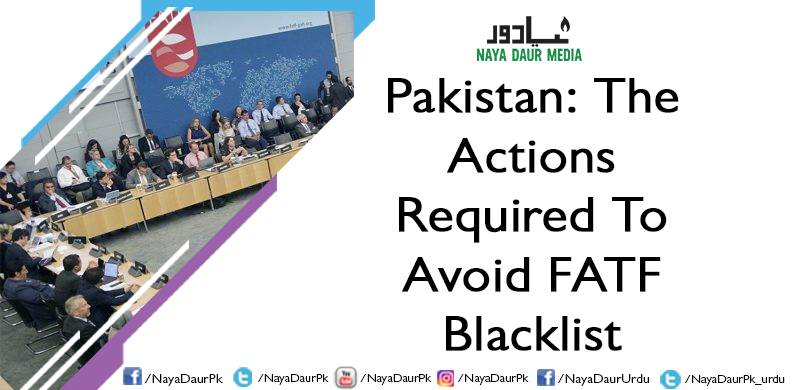
The Financial Action Task Force (FATF) has asked Pakistan to improve its counter-terror financing operations till October in line with an internationally agreed action plan or face actions against it.
It expressed concerned that Pakistan had failed to complete the action plan first by a January deadline and then again by a May deadline.
“The FATF strongly urges Pakistan to swiftly complete its action plan by October 2019 when the last set of action plan items are set to expire,” the FATF said in a statement.
“Otherwise, the FATF will decide the next step at that time for insufficient progress,” it added.
But what are the steps that FATF wants Pakistan to take? It has identified 10 specific areas which are:
1) Adequately demonstrating its proper understanding of the terror financing risks posed by the terrorist groups and conducting supervision on a risk sensitive basis.
2) Demonstrating that remedial actions and sanctions are applied in cases of AML/CFT violations and that these actions have an effect on AML/CFT compliance by financial institutions.
3) Demonstrating that competent authorities are cooperating and taking action to identify and take enforcement action against illegal money or value transfer services.
4) Demonstrating that authorities are identifying cash couriers and enforcing controls on illicit movement of currency and understanding the risk of cash couriers being used for terror financing.
5) Improving inter-agency coordination — including between provincial and federal authorities on combating terror financing risks.
6) Demonstrating that law enforcement agencies are identifying and investigating the widest range of terror financing activity and that terror financing investigations and prosecutions target designated person and entities and person and entities acting on behalf or at the direction of the designated person or entities.
7) Demonstrating that terror financing prosecutions result in effective, proportionate and dissuasive sanctions and enhancing capacity and support for the prosecutors and the judiciary.
8) Demonstrating effective implementation of targeted financial sanctions (supported by comprehensive legal obligations) against all 1267 and 1373 designated terrorists and those acting for or on their behalf including preventing the raising and moving of funds, identifying and freezing assets (moveable and immoveable) and prohibiting access to funds and financial services.
9) Demonstrating enforcement against terror financing violations including administrative and criminal penalties and provincial and federal authorities cooperating on enforcement cases.
10) Demonstrating that facilities and services owned or controlled by designated person are deprived of their resources and the usage of the resources.
It expressed concerned that Pakistan had failed to complete the action plan first by a January deadline and then again by a May deadline.
“The FATF strongly urges Pakistan to swiftly complete its action plan by October 2019 when the last set of action plan items are set to expire,” the FATF said in a statement.
“Otherwise, the FATF will decide the next step at that time for insufficient progress,” it added.
But what are the steps that FATF wants Pakistan to take? It has identified 10 specific areas which are:
1) Adequately demonstrating its proper understanding of the terror financing risks posed by the terrorist groups and conducting supervision on a risk sensitive basis.
2) Demonstrating that remedial actions and sanctions are applied in cases of AML/CFT violations and that these actions have an effect on AML/CFT compliance by financial institutions.
3) Demonstrating that competent authorities are cooperating and taking action to identify and take enforcement action against illegal money or value transfer services.
4) Demonstrating that authorities are identifying cash couriers and enforcing controls on illicit movement of currency and understanding the risk of cash couriers being used for terror financing.
5) Improving inter-agency coordination — including between provincial and federal authorities on combating terror financing risks.
6) Demonstrating that law enforcement agencies are identifying and investigating the widest range of terror financing activity and that terror financing investigations and prosecutions target designated person and entities and person and entities acting on behalf or at the direction of the designated person or entities.
7) Demonstrating that terror financing prosecutions result in effective, proportionate and dissuasive sanctions and enhancing capacity and support for the prosecutors and the judiciary.
8) Demonstrating effective implementation of targeted financial sanctions (supported by comprehensive legal obligations) against all 1267 and 1373 designated terrorists and those acting for or on their behalf including preventing the raising and moving of funds, identifying and freezing assets (moveable and immoveable) and prohibiting access to funds and financial services.
9) Demonstrating enforcement against terror financing violations including administrative and criminal penalties and provincial and federal authorities cooperating on enforcement cases.
10) Demonstrating that facilities and services owned or controlled by designated person are deprived of their resources and the usage of the resources.
